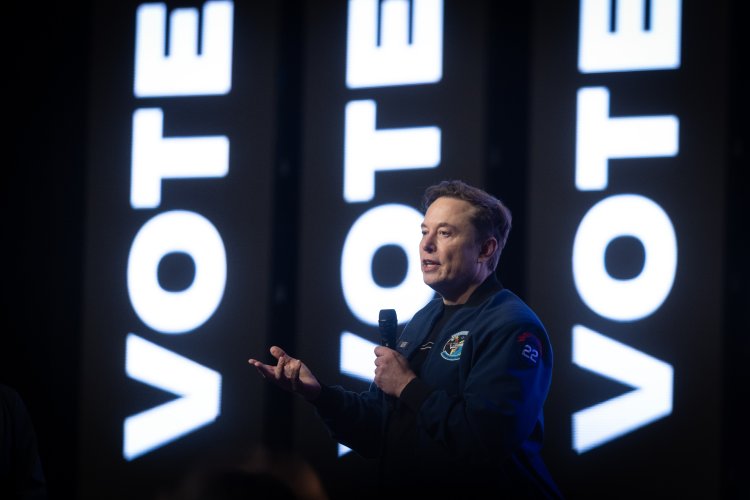Democrats privately express concerns that their Musk-centered campaign in Wisconsin may not be engaging voters of color
Organizers express concern that Democrats might repeat past missteps with Black and Latino voters in an important state Supreme Court election.

Although the Tuesday Supreme Court race is officially non-partisan, it is developing along conventional ideological lines. Musk and former President Donald Trump are supporting circuit court judge Brad Schimel from Waukesha County, while Democrats are backing Dane County Circuit Judge Susan Crawford. Musk's involvement—a figure considered the world's richest man and a close Trump advisor—has transformed the election into a national referendum on the former president. The outcome could significantly influence abortion policy, congressional maps, and more in a state that holds considerable political weight.
As the election approaches, polling indicates a tight race, meaning that low voter turnout among communities of color could be pivotal. Both candidates, Schimel and Crawford, are white, and neither party has specifically tailored its messaging for voters of color. This raises concerns among some Democrats about the party's struggle to maintain support among voters of color—support that has waned in battlegrounds nationwide, including Wisconsin last year.
“My biggest concern for the closing stretch is that we [expect] that Elon Musk's hatred is gonna get the job done,” remarked Mandela Barnes, the former Democratic lieutenant governor and now head of Power to the Polls Wisconsin, an organization aimed at mobilizing diverse communities statewide. Given the overall voter fatigue, Barnes fears that solely emphasizing negative associations with Musk may not provide a compelling reason for voters of color to turn out.
Angela Lang, a Milwaukee-based progressive activist, noted that engagement among voters of color might be lacking during the early months of Trump’s second presidency. Head of Black Leaders Organizing for Communities, Lang indicated that during outreach in predominantly Black neighborhoods, her organization encounters lingering voter frustration from past elections. “Naturally there's voter fatigue,” she shared. “People are still upset about November and are like: ‘Damn, we gotta vote all over again? I don't even want to do any of this’—there is some of that.”
Nevertheless, Lang remains optimistic that Democrats can harness Musk’s participation for their advantage. “A motivating factor for some folks is that you have this unelected bureaucrat billionaire who doesn't even live in Wisconsin, a member of the Trump administration, trying to buy our highest court,” she expressed.
The Wisconsin Supreme Court race is already breaking spending records for a judicial election, with over $80 million spent from both sides. Musk alone has contributed more than $18 million, even once proposing to give $1 million to two Schimel supporters at a Green Bay rally, only to retract the offer when concerns arose that it might violate state law.
Wisconsin Republicans dismiss the Democrats' framing of Musk as a looming threat, viewing it as an attempted distraction. “They are scrambling because they are in such disarray at the national level, and they don't know where to go,” said a GOP operative, speaking on condition of anonymity. “Basically, they are doing the same thing they did with Trump, just using a different boogeyman.”
Concerns also exist within Wisconsin’s Latino community about insufficient engagement in the Supreme Court contest. Darryl Morin, president and CEO of Forward Latino, expressed, “I think there is concern that while there has been some outreach to the Hispanic community, I don't think anyone's felt that they've been reached out to in earnest.”
Making matters more complicated for Democrats seeking to retain control of the Wisconsin Supreme Court seat is a down-ballot race for state superintendent of public instruction. The conservative candidate, Brittany Kinser, has gained the endorsement of Milwaukee’s largest Black newspaper, the Milwaukee Community Journal, defeating the incumbent and Democrat-supported Jill Underly.
“The reality is, Milwaukee is doing very poorly as it relates to educating minority students, whether they're Black or Brown,” noted Wisconsin GOP strategist Bill McCoshen. He pointed out that Republicans have adapted their strategy since their 2023 state Supreme Court defeat, emphasizing stronger candidates like Kinser and Schimel who appeal to a wider electorate.
“I don't know that either of the Supreme Court candidates have done a good or even okay job reaching out to minorities,” McCoshen remarked. “But if they're breaking anyway, it's certainly for Kinser in the superintendent's race.”
Both parties are framing the Supreme Court race as vital for the future of the republic, with numerous high-profile cases anticipated to come before the court, including matters concerning abortion, public-sector union collective bargaining, and potential challenges to the state’s congressional maps. However, these conceptual issues may not resonate as strongly with low-propensity voters, who often prioritize practical economic concerns.
“It’s exhausting to have democracy on the line in election after election after election,” stated Ben Wikler, chair of the Wisconsin Democratic Party. He further emphasized the urgency of the Democrats' messaging in the days leading up to Election Day, portraying a “criminal scheme” involving Musk and Trump aimed at manipulating Wisconsin elections. He reiterated the party's positioning: “This is the make or break election before the midterms.”
Mathilde Moreau for TROIB News












